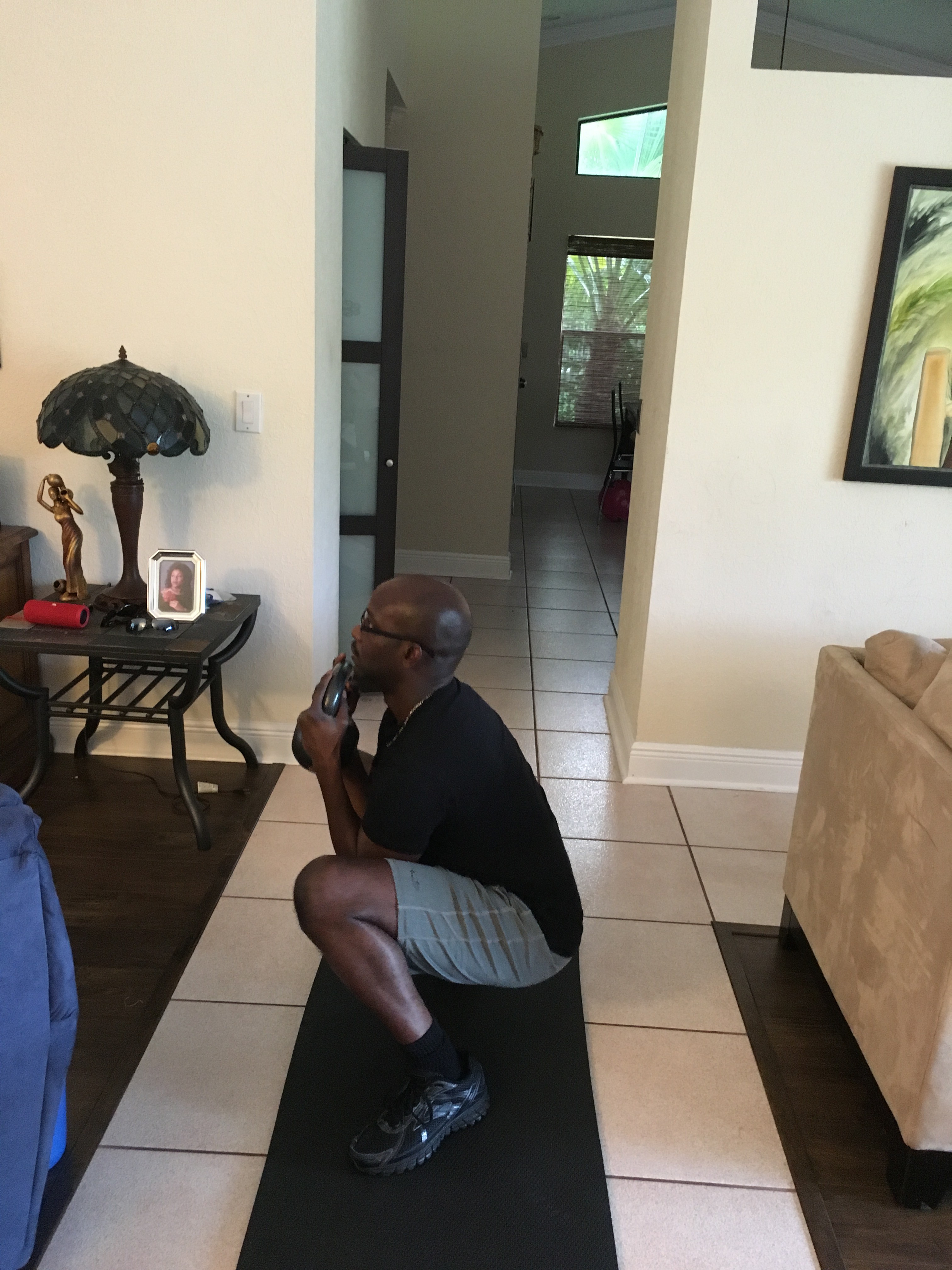
Like most of my posts here at Trainerize.me, I like to talk about my clients.
Warren is a 41-year-old father of two, who when we did our initial consultation, weighed 168 lbs. (at 6 feet tall). Six months later, on the scale he currently weighs 171 lbs.
Most people would see those numbers and think that I have failed him as a trainer since he increased his weight. However, there’s so much more they can’t see from that one number alone.
Going back to that first consultation, Warren had movement patterns that are often associated with tight hips, weakness of the core muscles, and overcompensation of glutes (all made apparent by performing a simple bodyweight overhead squat). Also, his muscular endurance wasn’t up to par, performing 24 pushups over the course of three minutes, needing to modify to a kneeling position.
Six months later, he’s pumping out 50 pushups in that same timeframe, as well as strengthened his core and learned to be more reliant on the posterior chain when performing a squat. He’s also become one of those clients that crave more challenging workouts (including the ones that I program on Trainerize for when he’s on the road for work).

Warren, working on his goblet squats.
I tell this story to clients who are frustrated because they don’t think they’re seeing results from their hard work. They work hard during sessions, follow the meal plan (more or less–we are all human, after all), and are emotionally invested in making healthy changes. When you’re that invested and think to only look at a scale for validation of your hard work, you will drive yourself crazy with every ounce gained or lost.
So before you give up hope, ask yourself the following questions:
1. Are you truly following the full fitness program set up by your trainer?
Nutrition and exercise need to be working in tandem to get results. I, as a trainer, can program burpees until you curl up into a ball three days a week and, if you’re refueling your body with junk food, it’ll make very little difference in your overall body composition.
2. How much better do you feel during the day?
Think about the simple things in your daily life. Are they easier to perform than they were when you started your fitness journey? It can be something as simple as being able to lift something heavy at work and not feel winded.
3. Do you find your workouts to be easier than when you first started?
If that’s the case, it means your body has adapted to the physical stress brought upon it by exercise. The only way that happens is with an increase in cardiovascular strength and muscle mass. Ask your trainer to check your body fat percentage (if they don’t already). This is a better indicator that you’ve potentially gained healthy weight, as opposed to more fat.
Instead of focusing on how much you weigh, shift your focus to the process and how much progress you’ve made, whether it’s proper posture and movement patterns or being able to run that mile a minute or two faster than you used to. There are so many things to be excited about in your fitness journey that doesn’t involve that little machine in your bathroom that you have a daily stare-down with.



